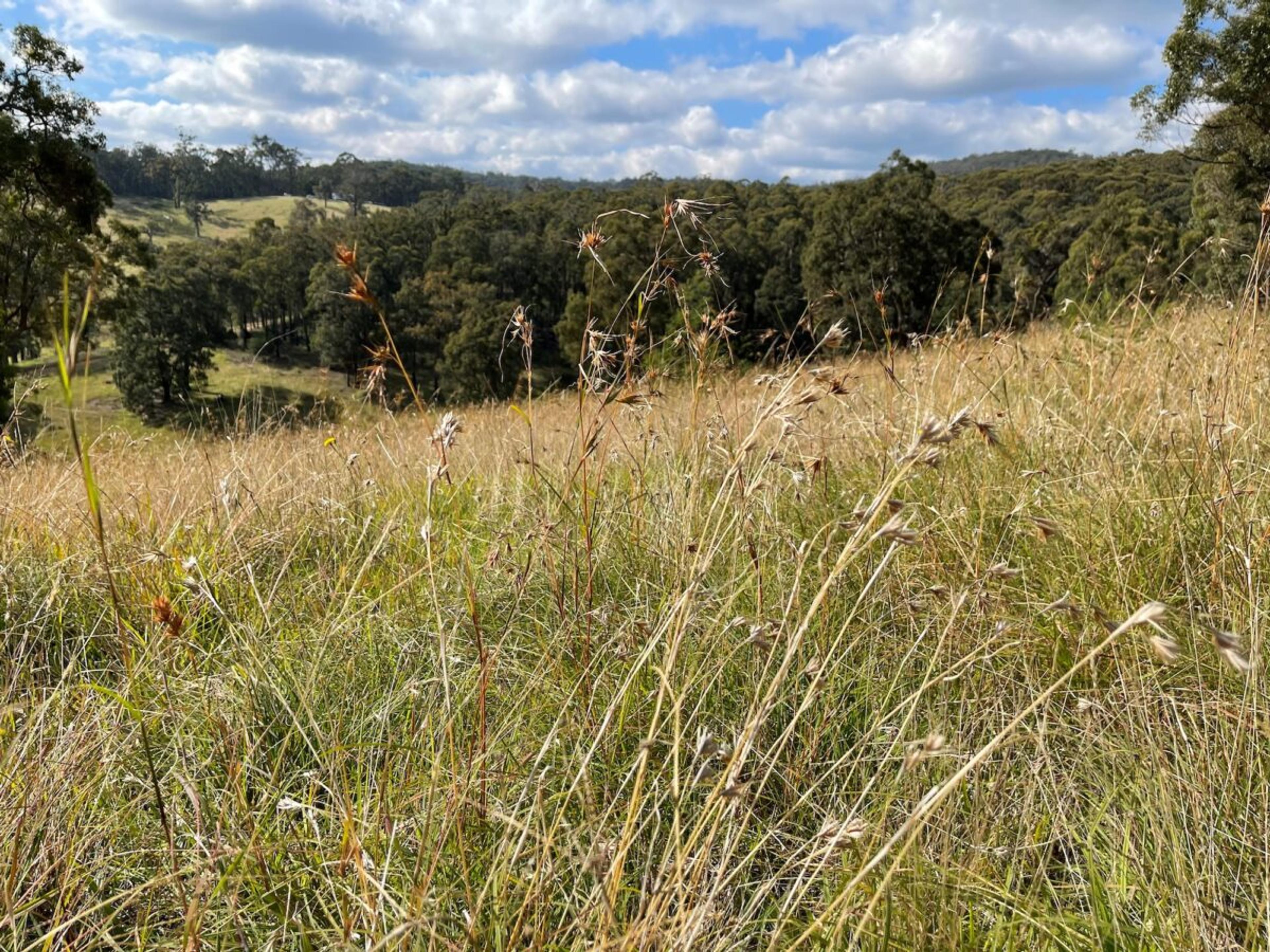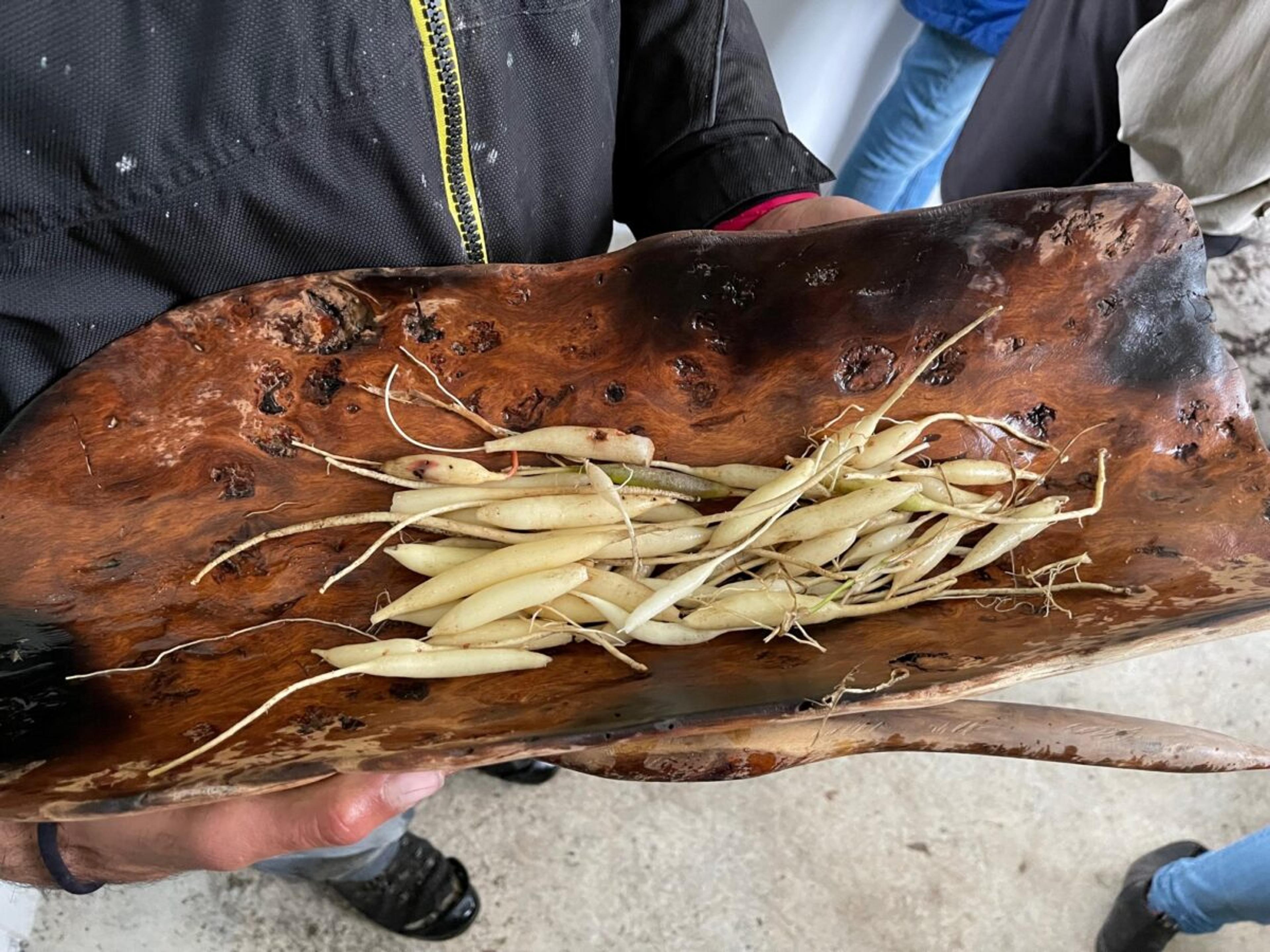Talking Soil with Black Duck Foods
In honour of World Soil Day we spoke with Wiradjuri man, Joshua Staines, about all things soil. Joshua, the Director at Black Duck Foods, shares his perspective on how we can best care for Country, the benefits of planting native varieties and how we might all play a part in regenerating our soils.
What does soil mean to you?
We are intrinsically connected to the soil. It is our responsibility to look after Country (soil). Whether we are on this Country for a day, week, month, year or lifetime it is our responsibility to care for this soil.
We can only truly look after the soil of this country by learning to read Country and move with it. We achieve this through listening to our Elders who teach us how to interpret weather, animals, plants and astrological behaviour. This is crucial for understanding what practice is required to appropriately care for Country.
What have been some of the impacts of growing native plants and crops on soil and ecosystem health at Black Duck Foods?
Our people are healthier for it. Through Black Duck Foods a day at work is a day with Country, listening, learning and actively regenerating nura (Country). We see the plants responding by growing bigger and healthier, the cultural burning stimulates fresh growth that in turn brings wildlife back to those areas, they then fertilise and bring new seed into the areas. We are even observing top-order predators, wedge-tailed eagles and dingos, returning to the farm to keep nature in balance.
How does growing native plants and crops compare with growing introduced plant species?
Our native plants have grown here for thousands of years. In grains alone we are observing five times the amount of protein compared to introduced varieties. Some native grains are in the process of being proven to be gluten free.
Native varieties do not require anywhere near the amount of water, chemicals and fertiliser to flourish in their endemic regions, compared to introduced varieties.
Perennial native grasses that form our grain varieties are known to have root systems of around a couple of metres deep and are symbiotic with soil fungi. They work together to keep Country healthy. Shallow rooted annual crops don’t offer the soil the same resilience to harsh environmental conditions.
In the face of increasing climate-related shocks and stresses, what impact do you think soil health will have on the resilience of the land and its people?
It’s unrealistic for Australian agriculture and gastronomy to remain distanced from First Nations foods and food systems. These systems have a natural resilience to dry climates and native soil properties. This helps the soil become resilient to drying, flooding and fire by providing organic material for soil microbes, that in turn mineralise nutrients and help feed plants that are responding to climate shocks.
What are some of the challenges that exist in regenerating soil and Country at this moment in time?
Access to land and capital to sustainably scale up regenerative operations remains the key challenge. The knowledge and practice is where it needs to be but support from government and philanthropic Australia is still being gained.
Regenerating Country is being achieved through many First Nations enterprises, the difficulty is informing the perspective and understanding of the funding bodies who require enterprises to be positioned, structured or marketed in a specific fashion to meet the funding stream’s eligibility criteria. It is a constant challenge to meet such criteria.
The essence of regenerative practice is sitting with Country and listening. Reading the landscape and with little notice, being willing to mobilise and meet Country where it is at to apply the correct land management practice.
Additionally, what are some of the opportunities?
There are great opportunities to work in partnership with universities, community groups, private land holders, farmers and mob. Through strong governance and agreement making we can embark on learning journeys with certainty, confidence and pride. Coming together as Australians to meet our joint responsibility of caring for Country.
An example of this can be observed at Black Duck Foods where we are working with enterprises such as Yambulla and neighbouring nations groups such as the Wadawurrung Traditional Owner Aboriginal Corporation to support each other’s journey. We are planning a number of free ‘Fire For Food’ workshops in 2023 for fire affected traditional owner groups in Victoria. We are also flying First Nations enterprises and elders from Northern New South Wales to Victoria to visit our Native Grain Knowledge Hub to share practice, resources and equipment.
What sort of shifts do you think need to happen to increase the uptake of land management practices that regenerate soil and Country?
As a country we need to embark on our long overdue gastronomic conciliation journey. Interrogating our growing, cooking, buying and consuming practices to embed values and perspectives that support the regenerative Country approaches.
For thousands of years First Nations communities have cared for Country and grown some of the healthiest, delicious, and sustainable food. We need to look to these food systems when considering how best to achieve greater food security, land regeneration and economic prosperity.
The perspectives, values, practice and technology needs to feature in all levels of education so current and future generations are engaging and innovating practice that will achieve the regenerative outcomes required.
Who needs to be at the table to make these shifts happen?
All Australians. Philanthropy Australia and all levels of government have a vital role to play in furthering an intersectional approach to solutions and making regenerative agriculture accessible. Ultimately, we all benefit and need First Nations leadership in this space.
Joshua is a Senior Policy Officer in Local Government and a Director at Black Duck Foods. Josh is a proud Wiradjuri father living on Darkinjung country on the central coast. Josh has spent the best part of a decade working in local government developing policy and implementing strategic projects. Prior to joining local government, he worked in the Lifestyles Innovation Team at the National Centre of Indigenous Excellence and in the Cultural Unit at KARI (OOHC). Josh invests significant time mentoring Aboriginal young people as well as: facilitating opportunities for on country experiences, supporting elders in land management and bush regeneration projects. Josh is a strong advocate for shared decision making, co-design and Aboriginal Economic Development.

